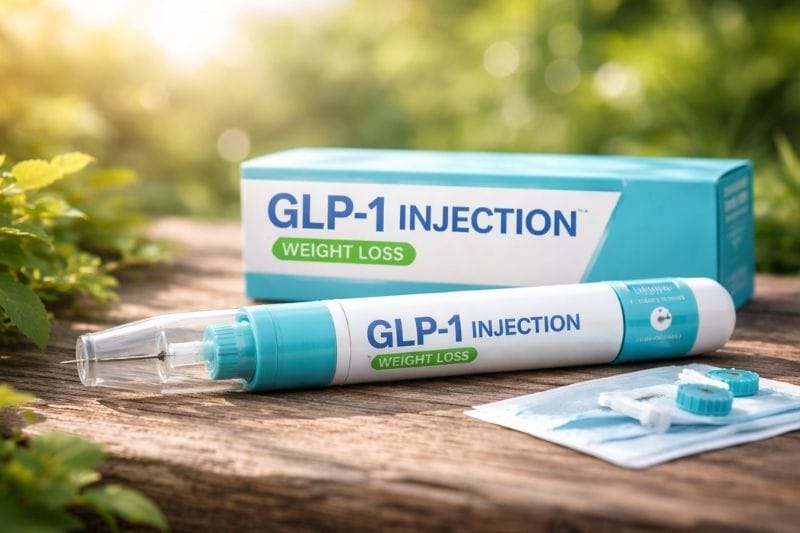Looking to boost your performance in the gym, on the field, or even sharpen your mind? You’ve probably heard of creatine, but navigating the facts from the myths can be tricky. Discover how creatine works, the best ways to take it, could it help when losing weight, and whether it could be the game-changer you’re looking for, debunking common misconceptions along the way.
What is Creatine?
Creatine is a naturally occurring compound found in small quantities in certain foods and produced in the human body. It plays a critical role in energy production, especially during high-intensity, short-duration activities like sprinting and weightlifting. Creatine monohydrate has garnered a reputation for being one of the most effective and well-researched options for enhancing athletic performance, muscle mass, and even cognitive function.
Boosting Sport and Weightlifting Performance
Creatine increases the body’s store of phosphocreatine, which is used to produce new ATP during high-intensity exercise. (ATP, or adenosine triphosphate, is a molecule that serves as the primary energy currency in the body.)
This means athletes and weightlifters can perform better, with improvements in strength, power, and muscle endurance. By enabling quicker regeneration of ATP, creatine allows for more sustained high-intensity activity before fatigue sets in, leading to performance enhancements across a range of sports, particularly in activities that require explosive movements or intense bursts of energy.
Creatine supplementation has also been linked to increased muscle volume. This is partly because creatine draws water into the muscle cells, expanding them and potentially stimulating muscle protein synthesis (muscle growth). For weightlifters and bodybuilders, this can translate into gains in muscle mass and strength over time.
Mental Benefits of Creatine
Interestingly, creatine’s benefits are not limited to physical performance. Research suggests that it also has a positive impact on cognitive function, particularly in situations of sleep deprivation or mentally demanding tasks. Creatine supplementation has been shown to improve memory, reaction speed, and mental fatigue, making it a potential nootropic (a nootropic is a type of supplement, drug, or other substance that is designed to improve cognitive function) for those looking to boost their brainpower as well as their physical capabilities.
To Load or Not to Load?
When starting creatine supplementation, there are generally two approaches: a loading phase or a non-loading phase.
A loading phase involves taking a higher dose of creatine – typically around 20 grams per day, divided into four 5-gram servings – for 5-7 days. This method aims to rapidly saturate the muscles with creatine, leading to quicker observable benefits. After the loading phase, a lower maintenance single daily dose of about 3-5 grams is recommended to keep the creatine levels up.
Alternatively, skipping the loading phase and simply taking a single daily dose of 3-5 grams from the start will also increase muscle creatine stores, albeit at a slower rate. This approach may take 3-4 weeks to maximise creatine levels in the muscles but is equally effective in the long run and may reduce the risk of minor side effects, such as bloating, experienced by some during the loading phase.
Daily Quantities and Health Considerations
Regardless of whether you choose to load or not, the consensus on daily intake is clear: a dose of 3-5 grams per day is sufficient for maintaining elevated levels of creatine in the muscle over time. It’s also recommended to take creatine with a meal or drink that contains carbohydrates or protein to enhance its absorption.
While creatine is considered safe and beneficial for most people, some individuals may experience weight gain due to water retention in the muscles. Other potential issues include digestive discomfort, such as bloating and diarrhoea, particularly when high doses are consumed. In rare cases, creatine has been linked to kidney stress and increased risk of kidney damage, especially in those with pre-existing renal conditions.
Hydration is paramount, as creatine increases water retention in the muscles. Ensuring adequate water intake can prevent dehydration and optimise muscle function.
Lastly, as with any supplement, it’s wise to consult with a healthcare professional or other suitable professional, before starting creatine, especially for those with pre-existing health conditions or those taking medication.
How Long Can I Take Creatine For?
Creatine is often used as a supplement over extended periods, and its usage can vary widely depending on individual goals and responses. Typically, it’s considered safe to use creatine continuously for up to several years. Research suggests that long-term creatine use does not appear to have detrimental health effects in healthy individuals.
Again, it is advisable to consult with a healthcare provider or other suitable professional to tailor the duration and dosage to your personal health profile and fitness objectives, ensuring the regimen remains safe and effective.
Does Creatine Help with Weight Loss?
Creatine isn’t a fat burner, but it can still play a helpful role in your weight loss journey. It’s one of the most researched supplements out there, mainly known for boosting strength and performance in the gym. That means if you’re lifting heavier or pushing out a few more reps, you’re likely building more muscle over time. And more muscle helps increase the number of calories your body burns each day, even at rest.
Some people worry about creatine causing water retention, especially in the early stages. While that might show as a small increase on the scales, it’s not body fat. It’s just your muscles holding on to a bit more water, which is totally normal and usually settles down.
So, while creatine doesn’t directly burn fat, it can support better workouts, help maintain muscle during a calorie deficit, and make your body more efficient overall. If your goal is to lose fat while keeping strength and shape, it might be worth considering – although it is not essential for purely weight loss reasons.
Is Creatine a Steroid?
No, creatine isn’t a steroid. It’s a completely different thing. Steroids are synthetic substances that mimic certain hormones in the body, often used (illegally in some cases) to rapidly build muscle. Creatine, on the other hand, is a natural compound your body already produces in small amounts, and you also get it from foods like red meat and fish.
When you take creatine as a supplement, you’re simply topping up your body’s natural stores.
Creatine is legal, widely researched, and safe for most people when taken as directed. It’s often lumped into the same category as other performance aids, but calling it a steroid is like calling protein powder a magic potion – not quite right.
My Own Experience With Creatine
I do feel like I have more power on the bike and when lifting weights with taking creatine, but the biggest benefit I have found from Creatine is on the cognitive side. I definitely feel like I have more clarity and focus when taking it.
I don’t get on well with a loading phase, and get some digestive discomfort. I don’t take it all the time.
Everyone is different of course, and my experience is quite likely to be different from yours.
In Summary, Who Benefits Most?
While creatine’s benefits are broad, certain individuals and activities tend to see the most noticeable improvements:
- For Physical Performance:
- High-Intensity Athletes: If your sport involves repeated, short bursts of powerful effort, such as football, rugby, basketball, or competitive sprinting, creatine can help you maintain peak performance throughout games or sessions.
- Strength & Power Enthusiasts: Those focused on lifting heavy weights, like powerlifters, CrossFit athletes, or bodybuilders, will often experience direct improvements in strength, power output, and muscle endurance during their training.
- Explosive Movements: Any activity requiring explosive power, from jumping to throwing, can see a boost from enhanced ATP regeneration.
- For Cognitive Edge:
- Mentally Demanding Situations: Creatine’s cognitive benefits can be particularly noticeable during periods of intense study, long work hours, or when facing mental fatigue due to sleep deprivation.
- Complex Problem Solving: Individuals engaged in tasks requiring sustained focus, quick decision-making, and memory recall might find it provides an extra layer of mental clarity and reduced fatigue.
I can help you…
I am a Weight Loss Coach, successfully helping people just like you to lose weight and keep it off:
I am Strength and Nutrition Coach for sports events and athletes – helping people like you to get fitter, stronger and faster:
I am a Menopause Support Coach, find out more about how I can help you:
Want to get stronger, fitter or gain muscle?




